Japanese and Chinese experts gathered to discuss the present-day significance of the Japan-China Treaty of Peace and Friendship, which marks the 40th anniversary of its signing this year, during a breakout session on political and diplomatic issues at the 14th Tokyo-Beijing Forum. Politicians as well as current and former diplomats from both countries participated to discuss the significance of the treaty in shaping the future of the Sino-Japanese relationship.
Restraint and rule of law needed to realize anti-hegemonism
From the Japanese side, Akio Takahara, a professor at the University of Tokyo's Graduate School of Public Policy, explained the significance of the treaty to be the two countries' intention to promote peace based on the "five principles of peaceful co-existence" that the Chinese have pursued since the 1950s, and the pledge to resolve all disputes in a peaceful manner without the use of force or threat. The treaty also states that neither China nor Japan will seek hegemony in the Asia-Pacific region or any other region, and oppose any attempts to do so.
In particular, Takahara said it was important to establish a rule of law between Japan and China as well as with the entire Northeast Asia region in order to realize this clause on anti-hegemonism. Unlike in the 1970s when the treaty was signed at a time when both countries viewed the Soviet Union as a common threat, "there is no common strategic goal between Japan and China. The point is whether and how we will be able to realize such a rule of law and restraint," he said.
Carrying on the spirit of the peace treaty
From the Chinese side, Cao Weizhou, deputy director of the Foreign Affairs Committee of China's National People's Congress, lauded the treaty as having value today for promising to build peace based on a friendly relationship and for promising anti-hegemonism. He said we must not lose track of the meaning of the treaty, and not have the different social systems and level of development affect this greater goal. He urged Japan to contribute to Chinese President Xi Jinping's call to build a "Community of Common Destiny," and that it was important to make political decisions from the higher standpoint of peace for humankind in order to further improve relations between the two countries.
Cao also emphasized the importance of the spirit of "win-win" and "cooperation," citing how bilateral trade increased sixtyfold in the last 40 years, and how more than 10 million people have traveled between the two countries, as examples of the benefits of the bilateral peace treaty.
Yuichiro Tamaki, leader of Japan's opposition Democratic Party for the People, called for the need to reconsider the significance of the treaty's "anti-hegemonism" clause in the wake of the current political landscape and the rise of China, as well as the need to redefine "responsibility" in the context of the treaty's pledge to "have responsibility for the peace and prosperity of the region."
Regarding the results of this year's Japan-China joint opinion survey, which showed that 80 percent of the Chinese respondents felt Japan to be a military threat, Tamaki said it was obvious from how Japan had sought to build a peaceful nation since the end of World War II that it is not seeking hegemony. He also said it was important for Japan to show it is able to make security decisions that run counter to those of the United States, such as by revising the Japan-U.S. Status of Forces Agreement, in order to address fears that the U.S.-Japan alliance is perceived as a threat to China.
"Accurate mutual understanding" is necessary
The discussion moved on to how to realize the principles and goal of the treaty, during which Jia Qingguo, associate dean, School of International Studies, Peking University, said the key to realizing further peace and friendship was to understand each other properly. "Japan and China are beneficiaries of today's international system, and are countries that are willing to bear global responsibility. It is important that we try to understand each other's country from this perspective," Jia said, adding that both countries need to cooperate further in the field of global governance at a time when the international order is facing major challenges.
Kiyohiko Toyama, a Japanese politician from the ruling New Komeito Party, described a non-partisan group of parliamentarians he belongs to that has visited China for the past six years without fail and how the visits have helped him further understand China, emphasizing that such mutual exchanges were important, particularly for politicians.
Defining hegemony
Han Fangming, chairman of non-profit research organization Charhar Institute and vice chairman of the Foreign Affairs Committee for the political advisory body, the Chinese People's Political Consultative Conference, said his understanding of "hegemony" was "a superpower or strong country forcing a small country to submit," something that has been committed only by European nations in the modern era and the United States after World War II. "Traditionally, China does not have a history of hegemony, expansion and invasion, and nor is it seeking hegemony in the future. Japan's view that 'China's rise to power in Northeast Asia must be viewed with caution' is unfair. China's rise to power merely indicates a peaceful development, and is always based on goodwill and friendship," Han argued.
In response, former Foreign Minister Yoriko Kawaguchi said that a treaty consists of what two nations have agreed to, based on the beliefs of the international community or one's own country at the time it was written, "so the understanding may change as time passes, and unexpected circumstances could arise as the global landscape changes." Noting how the Japanese public's impressions of China did not show signs of improvement in the recent survey, Kawaguchi merely said, "I wish for the Chinese side to think about why that is the case."
Liu Hongcai, deputy head of the International Liaison Department of the Communist Party of China, reassured the Japanese participants, saying that China was also bound by the anti-hegemonism clause in the treaty. "China will seek the royal road to peaceful development. We will not threaten other countries' sovereignty with military power. This is the common understanding of the Chinese people, which is also written in the constitution and in the Communist Party charter," he said.
Hiroya Masuda, a former minister of internal affairs and communications, said that while Japan and China clearly wish to uphold the spirit of the treaty, the two nations appear to differ over their interpretation of hegemony. In order for the two countries to deepen mutual trust, it was necessary to continue discussions on the meaning of hegemony, he said. Japanese politician Ayuko Kato of the Liberal Democratic Party, concurred, saying it was important not only to take up issues of common interest that are easy to discuss, but to conduct a healthy debate about the differences in the social systems of the two countries as well as misunderstandings that could arise from them.
Is China as self-centered as the Japanese believe?
The Genron NPO President Yasushi Kudo said that while he was encouraged by remarks from the Chinese participants that China was not seeking hegemony, he said the Japanese feel that China is acting as a self-centered superpower, and asked if this was indeed true or merely a misunderstanding among the Japanese. He also commented that there was no multinational security framework to build peace in this region, and it may be time now to take a step further from the peace treaty and work to build such a mechanism.
In response, Tamaki reiterated earlier comments that it was important to visit China to deepen mutual understanding, citing how his visit to Chongqing last year was an eye-opener that showed how much the inner cities of China have developed. But at the same time, he said the repeated intrusion of Chinese vessels into Japanese territorial waters was objective proof of the possibility of China's hegemonistic tendencies, which consequently breed a sense of mistrust among the Japanese.
Takahara added: "What one country believes is an act of sovereignty could become an act of hegemony, if there is a difference in opinion regarding sovereignty. You need to understand correctly that that is happening now in the East China Sea and South China Sea... Merely claiming that you are not seeking hegemony is not enough for citizens in other countries. Please try to think in terms of the Japanese people and citizens of the coastal countries in the region."
Liu responded that China attempts to resolve international issues by involving all concerned parties and that one should not push the values of one's own country onto others. As an example for the potential involvement of Japan in Chinese initiatives, Liu suggested using the "One Belt, One Road" initiative and development of African nations as a way to expand areas of cooperation between the two countries.
Jia argued that other nations also face territorial issues, which are different from the issue of hegemony. He said China has faced territorial issues throughout its history, and had resolved them through dialogue and negotiations. "China used to be very weak, and when Vietnam invaded what China claimed to be its waters, no one accepted China's claims. Today, China is stronger and it is merely acting to claim its right," he said.
Denuclearization of North Korea and a peace mechanism for the region
Liu further cited the establishment of a permanent peace mechanism in the region and the denuclearization of the Korean Peninsula to be the most important issues in Northeast Asia. Establishing a basic principle for all nations to follow, based on the common denominator of the issues that the two countries and the entire region share in regards to peace and security, would ultimately ensure anti-hegemonism and a peaceful development of the region, Liu said. He further said that the denuclearization process in North Korea was progressing well, and that Japan should stop being a bystander and join the process.
Han emphasized the need to incorporate North Korea into the peace mechanism of Northeast Asia, as well as the need to remain positive about the ongoing negotiations between the two Koreas and with the United States. Tsuyoshi Yamaguchi, a Japanese political from the Liberal Democratic Party, welcomed the positive mood but cautioned that the talks should not undermine the ultimate goal of denuclearization.
Kudo wrapped up the session, saying he was impressed to see politicians from both countries discuss the meaning of the Sino-Japanese peace treaty in such depth, and that open and honest dialogue between politicians was critical to building a common understanding among the citizens of both nations, something that is sorely lacking today.
Read more:
• Japanese, Chinese policymakers and opinion leaders mull ways to deepen Japan-China relations strategically and pragmatically
• Tokyo Consensus 2018
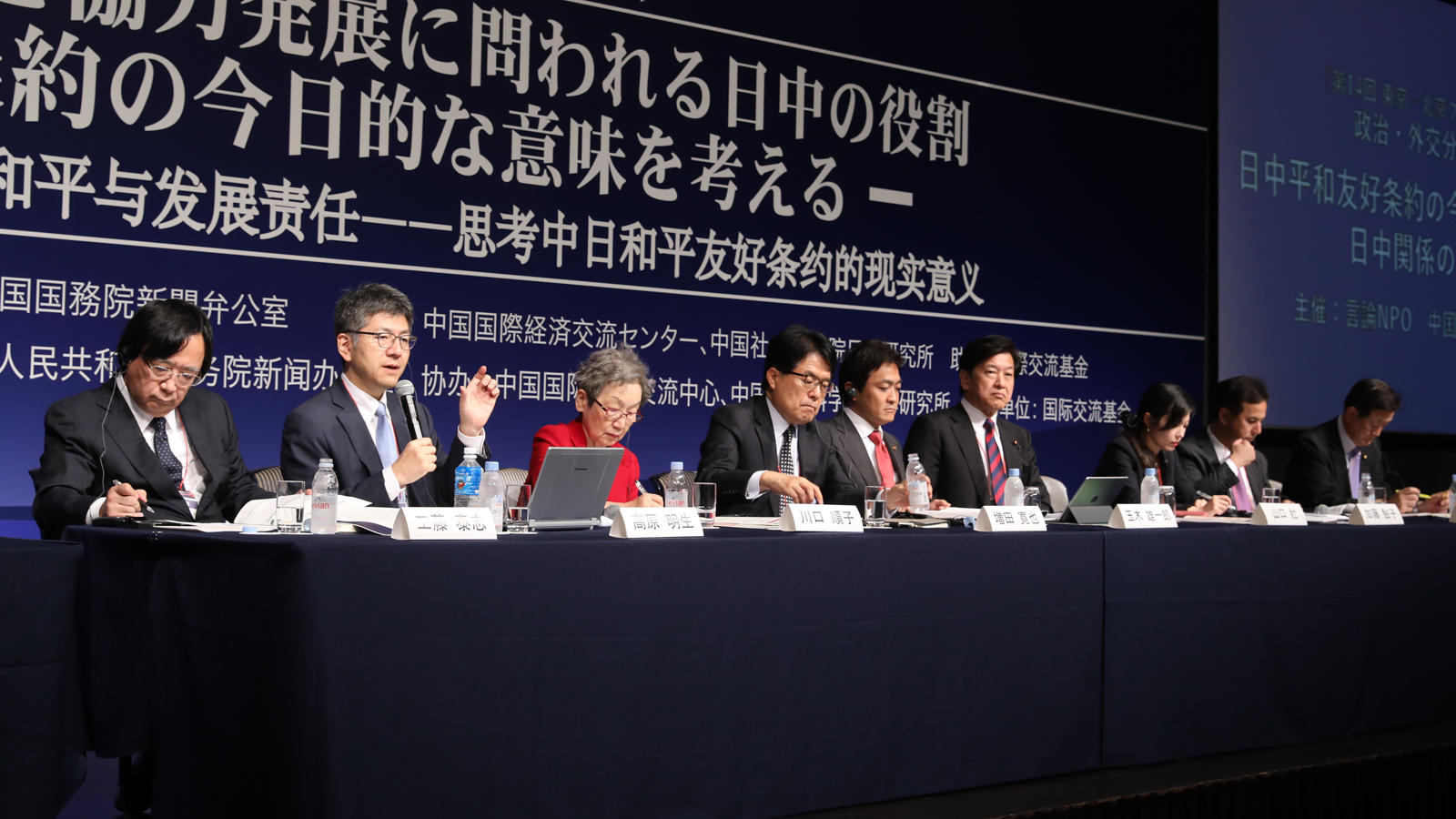
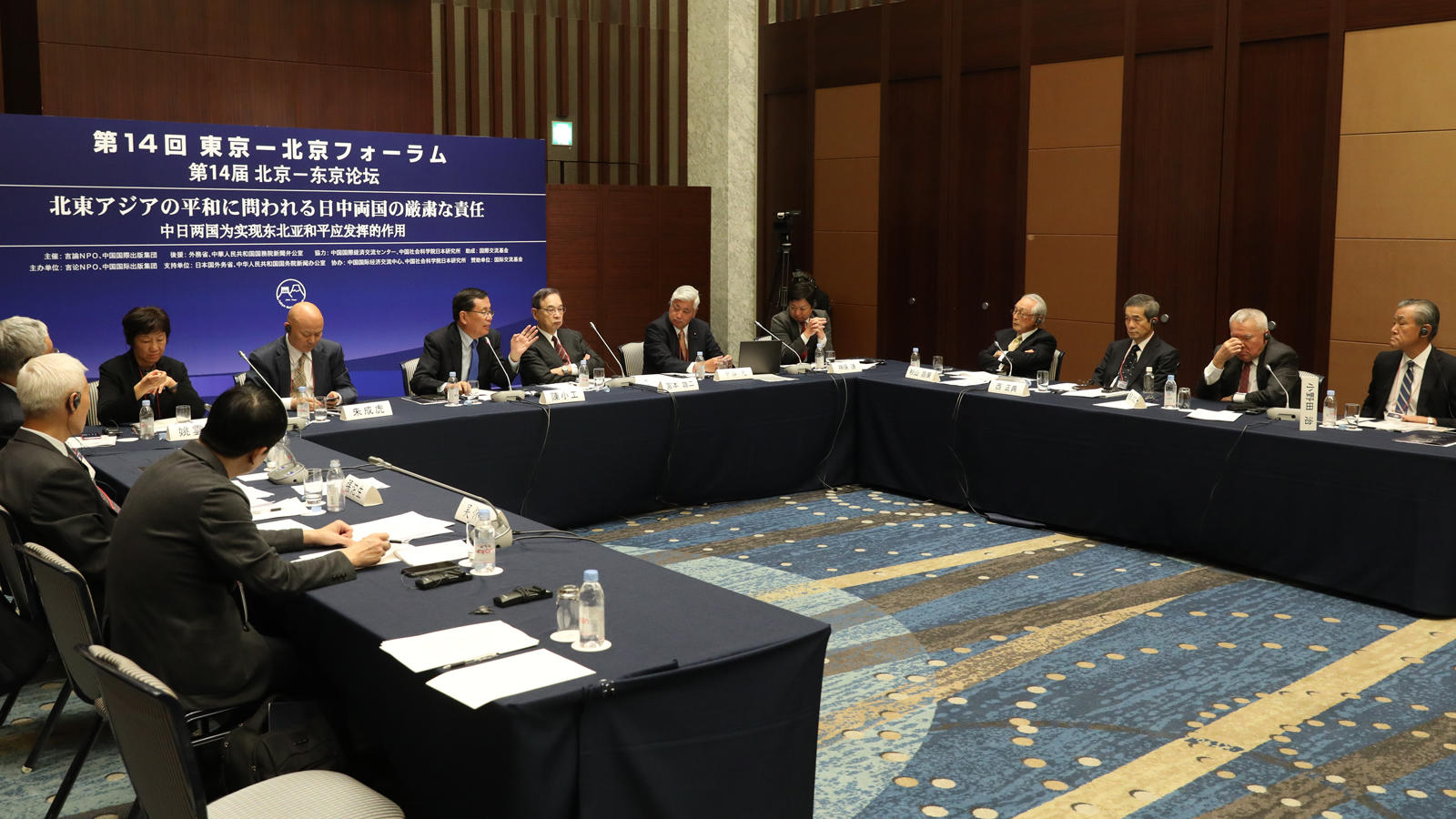
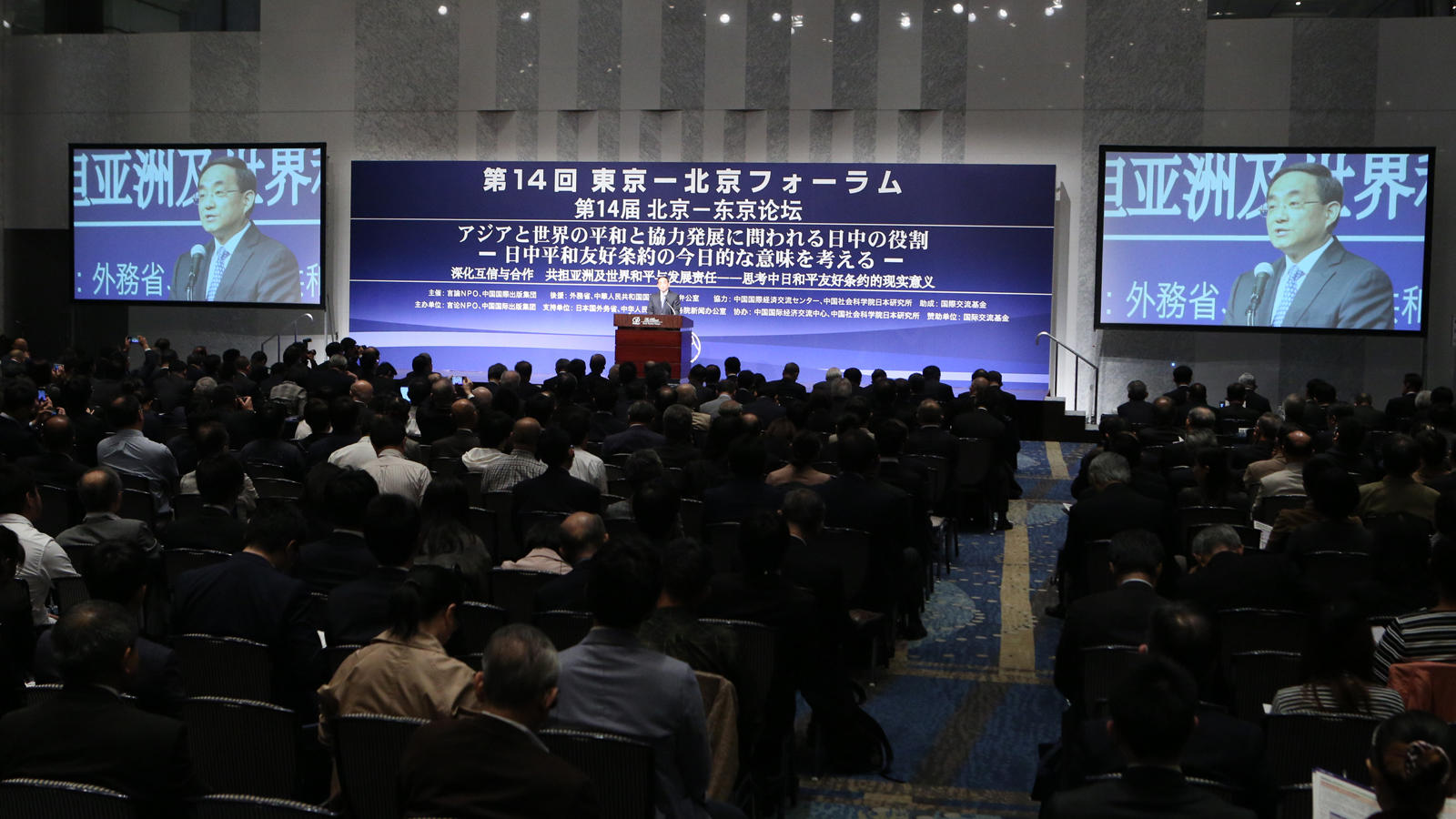
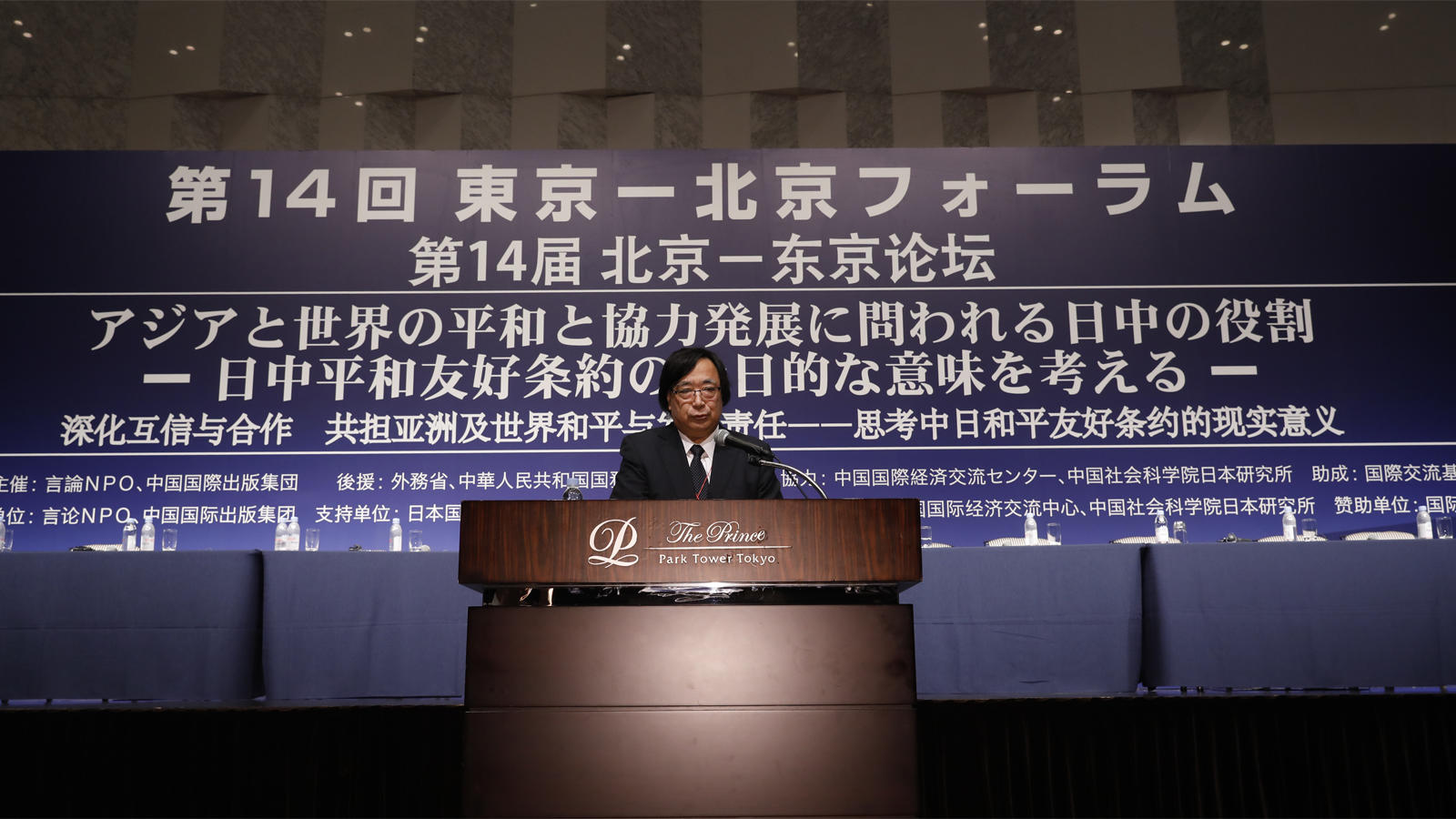
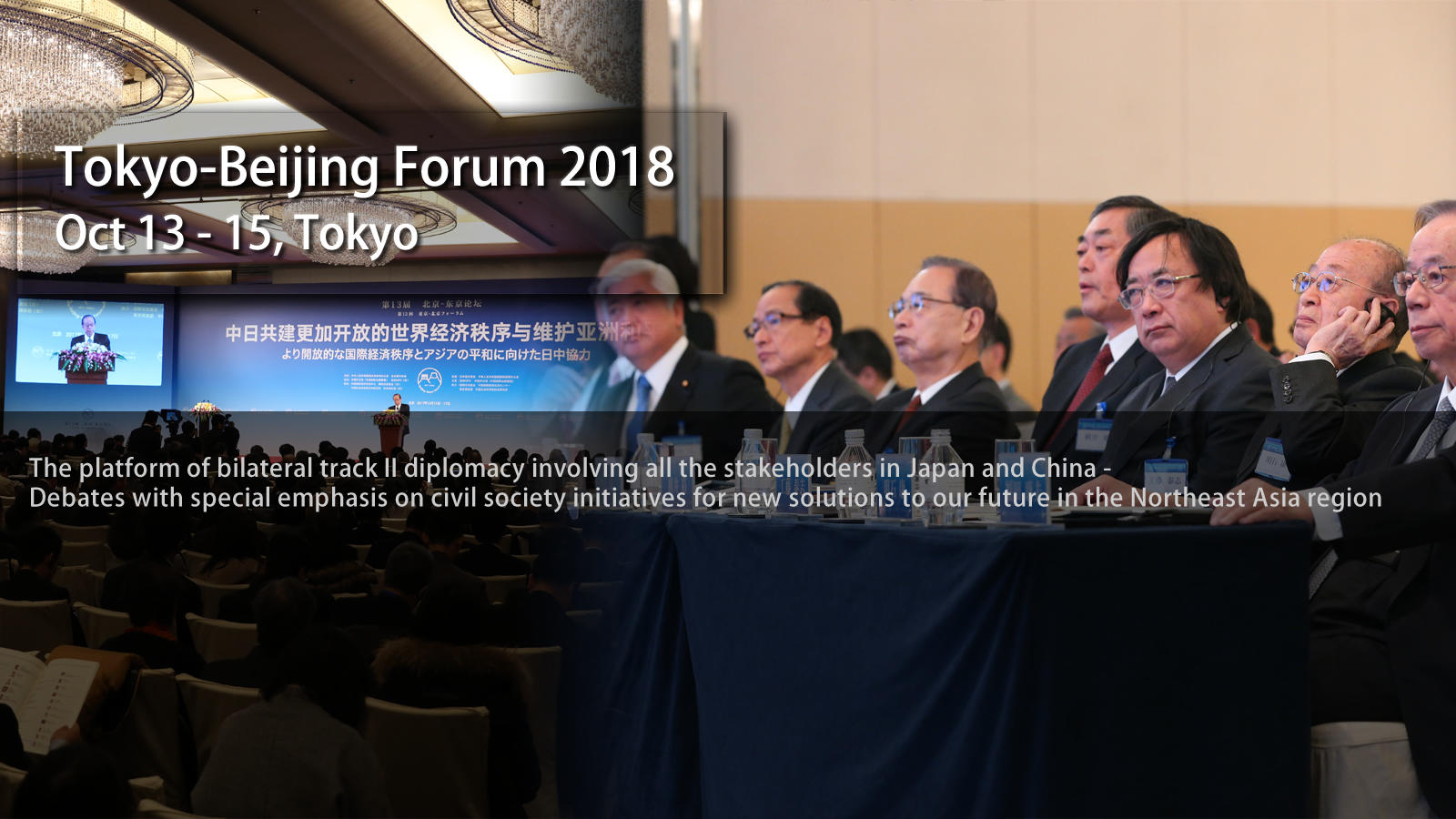
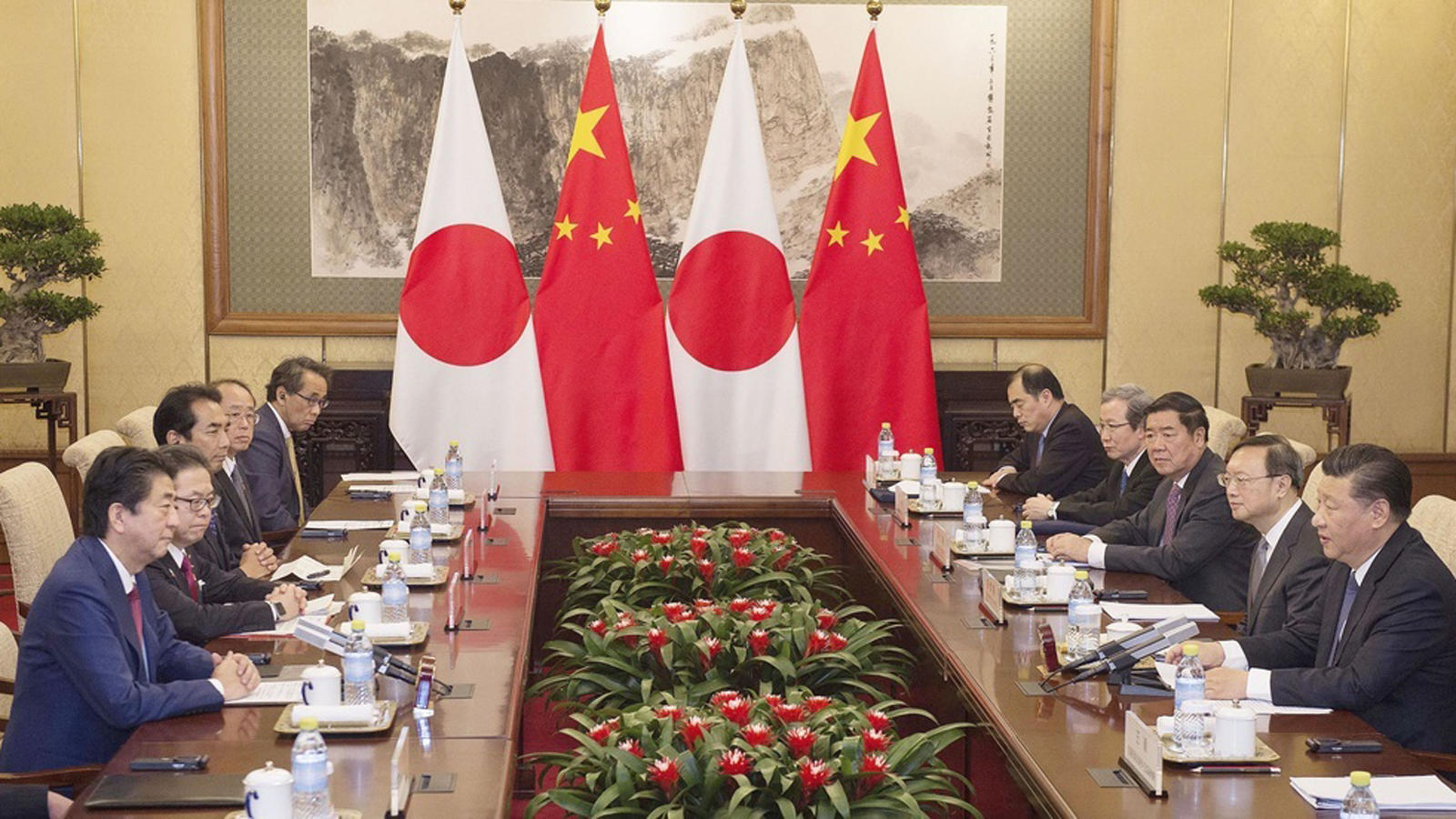
Post a comment